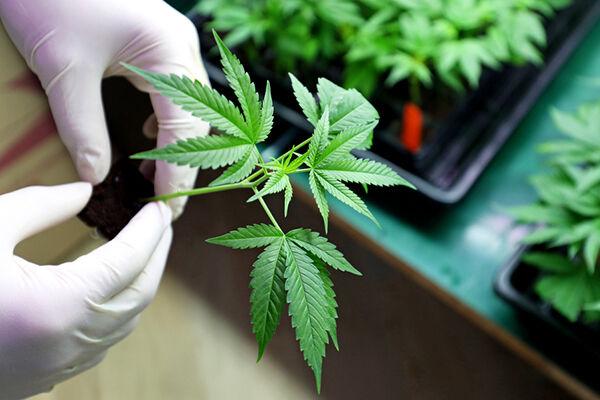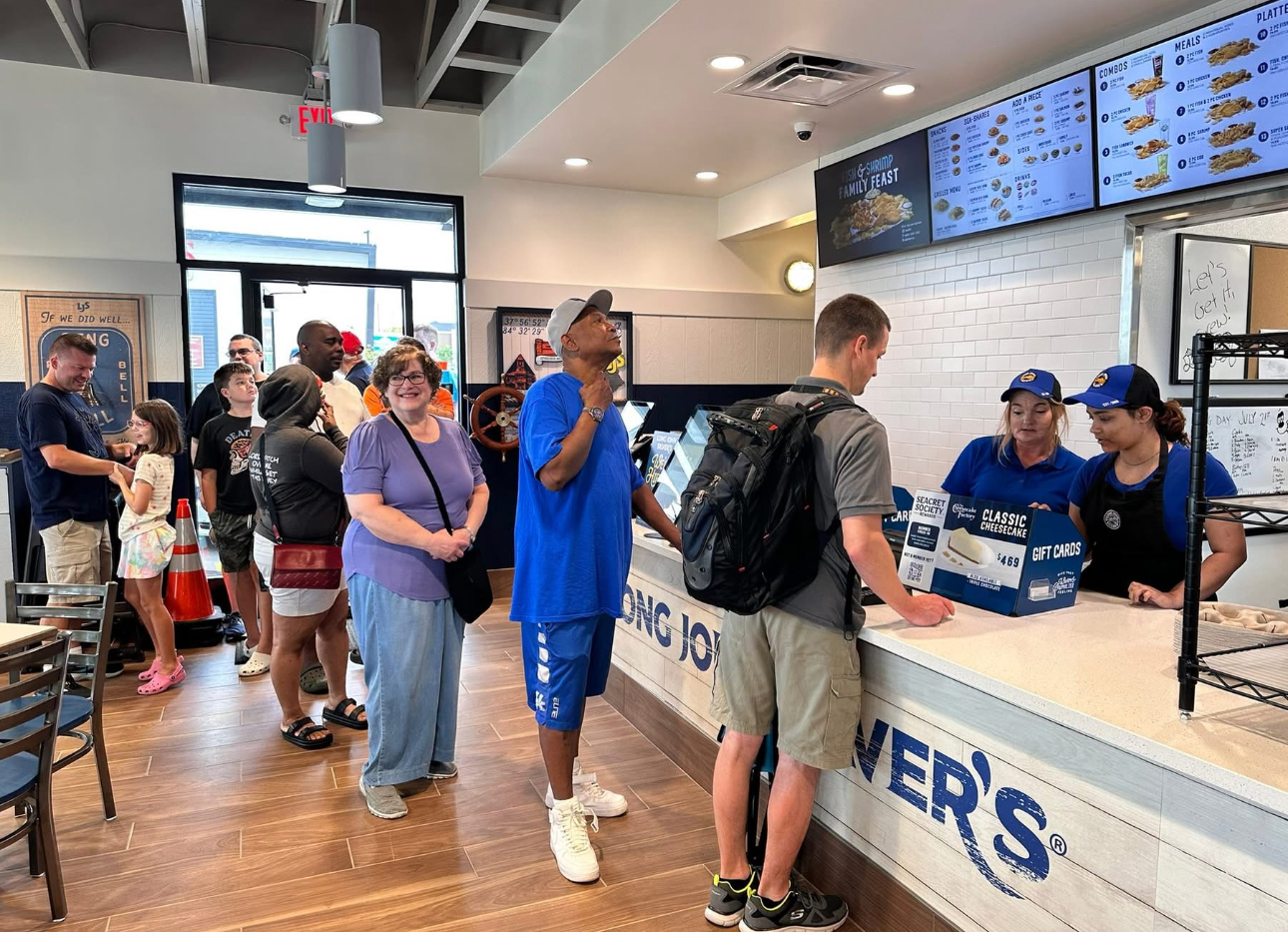Medical cannabis in Kentucky: Wilmore and Nicholasville say no, Jessamine County says yes (for now)
Published 8:52 am Thursday, July 25, 2024

- Information on medical cannabis will be provided in seminars through the UK Cannabis Center. Medical cannabis becomes legal in Kentucky on July 1, 2024. (University of Kentucky photo)
|
Getting your Trinity Audio player ready...
|
In March 2023, Kentucky Gov. Beshear signed Senate Bill 47 (SB 47) into law, legalizing medical cannabis for Kentuckians with chronic illnesses beginning January 1, 2025.
Although patients who qualify cannot apply for medical cannabis cards until January 1, as of July 1, Kentuckians can now start applying for a medical cannabis business license, and medical providers can apply to Kentucky’s Board of Medical Licensure and Board of Nursing for permission to write medical cannabis prescriptions.
According to the Kentucky Lantern, this change is due to bipartisan House Bill 829, which became law during this year’s legislative session and moved the medical cannabis timeline from January 2025 to July 1, 2024.
Trending
Applications to become cultivators or processors, applications to open a safety compliance facility, and dispensaries will remain open until August 31. According to regulations, licensed cultivators in Kentucky are only allowed to grow indoors. There are a limited number of licenses that the state will distribute, and winners will be chosen in a lottery system. Kentucky will award 48 licenses to dispensaries in 11 regions across the state – 10 to processors and 16 to cultivators. However, Fayette County and Jefferson County guaranteed two licenses each. Lottery winners will be announced in October.
Individuals interested in applying for a license should do so at the following link: https://kymedcan.ky.gov/businesses/Pages/How-To-Apply.aspx. The regulations for opening and running medical cannabis operations in Kentucky are here: https://kymedcan.ky.gov/laws-and-regulations/Pages/Regulations.aspx
With this legalization comes an automatic opting-in of local governments, counties, and cities to have medical cannabis business operations. Towns and counties can enact ordinances to establish restrictions and fees on medical cannabis businesses or prohibit all medical cannabis operations in their jurisdictions. Local governments can also put the question of allowing medical cannabis business operations on the ballot. The resolution must be submitted no later than the second Tuesday in August preceding the day established for a regular election, August 13, 2024.
Local governments can establish time, place, and manner restrictions (that are not less restrictive than the law), local fees for local administration of medical cannabis businesses, or prohibit all medical cannabis business operations within its territory. A local government must opt out of allowing medical cannabis business operations by January 1, 2025. If a business applies for an application and receives a license from the state before the government makes its decision to opt-out, the business must move out of the jurisdiction and use their license to open a business in a jurisdiction where they are legally allowed to operate.
Local governments may not enact an ordinance that imposes an “undue burden” to make cannabis businesses unreasonable.
The cities of Nicholasville and Wilmore have both opted out of allowing medical cannabis businesses in their jurisdictions through ordinances read and approved in their city meetings.
Trending
According to the March 11 City Commission meeting, the city of Nicholasville voted to prohibit medical cannabis business operations so that the appropriate city department could study the impact of siting, zoning, and regulatory measures that may be required regarding cannabis operations in the city’s corporate limits.
Once the ordinance was finalized, Nicholasville City Attorney Darren Sammons stated that this did not mean the city could not change its decision in the future.
Mayor Alex Carter said the city did not hear from any locals in support of or against cannabis, which led them to this ordinance.
“I think from the city omission’s standpoint, we just wanted to make sure what our requirements are as far as regulation, regulating these dispensaries, cultivators, or labs. There were a lot of questions on our end about what our requirements were as far as regulation on the local level. It is kind of a moving target, it has been for the last six months or even a year.We just want to make sure that at the time it is adopted and when we are allowing it in Nicholasville that we do it the right way,” Carter said.
Currently, Carter and the Nicholasville City government are working with the Kentucky League of Cities and their legal staff and the city’s legal staff to determine what needs to be done on the local level in Nicholasville before the city considers allowing medical cannabis production and sales.
“The first step is…deciding where we want these dispensaries or cultivators or the labs located in as far as which zone and where we are comfortable with permitting that. So that discussion is going to be held at the city planning commission on the fourth Monday of July this month. And then, at that point, it will come to the city commission for adoption. Just to revisit we just want to answer all our questions and make sure we’re doing everything properly and enforcing it in the correct manner,” Carter said.
The Nicholasville Mayor emphasized the importance of making the “best decision for our community,” and bringing in medical cannabis to the city “the right way,” if they make that decision.
“We’re just trying to do all the background research and get as much information as we can. I think [medical cannabis] will be accepted for the most part, we just need to ensure that we’re doing it in a way that it’s not a detriment to the community but an asset and helpful to the citizens that are in need,” Carter said.
The Wilmore City Council made a decision that was finalized through a second reading on June 17. The vote was 5-1 against everything from production to sales of medical cannabis in Wilmore.
“We did not have any residents raise issues with our vote. We had one council member [who felt that]…if it’s legal, then we should allow it, but the other council members did not feel that Wilmore was an appropriate location for cannabis sales, so that’s why we did that. That’s the action of the council and I support their actions. I mean you can still get what we have at the drugstore, just not cannabis,” Wilmore Mayor Harold Rainwater said.
The Jessamine County Fiscal Court has not opted out of allowing medical cannabis operations in the unincorporated (non-Wilmore or Nicholasville) parts of the county. This means they are still automatically opted in, but they haven’t voluntarily agreed to allow medical cannabis operations either. This means that right now, individuals planning to apply for a license to open a business in Jessamine County can do so.
Magistrates did not speak up at Fiscal Court meetings where the issue was brought up.
“I can’t speak to why Nicholasville and Wilmore passed their ordinances, but it’s a very limited number that [the state] is giving. The way that I understood it, you could talk about a vision of cannabis for the state, but their idea is they didn’t want anybody to have to drive more than an hour if they wanted a prescription for the approved uses,” West said.
Since two licenses will already be granted for Jessamine’s next-door neighbor, Fayette County, West said he doubts one will be granted for an applicant in Jessamine County. However, due to the Fiscal Court’s current inaction, it is possible.
West said there has been some minor discussion between him and the magistrates on whether they want to allow medical cannabis or not but that they have not yet had an official workshop or discussion in the fiscal court. “I just wanted the court to have the information that we’ve been sent and solicit input from magistrates if they so desire,” West said.
The Governor’s “local issues conference” is happening in Louisville on August 8. Judge West said the county magistrates want to attend this conference and find out “first-hand information” before holding a workshop in the courthouse to decide on the issue of medical cannabis.





